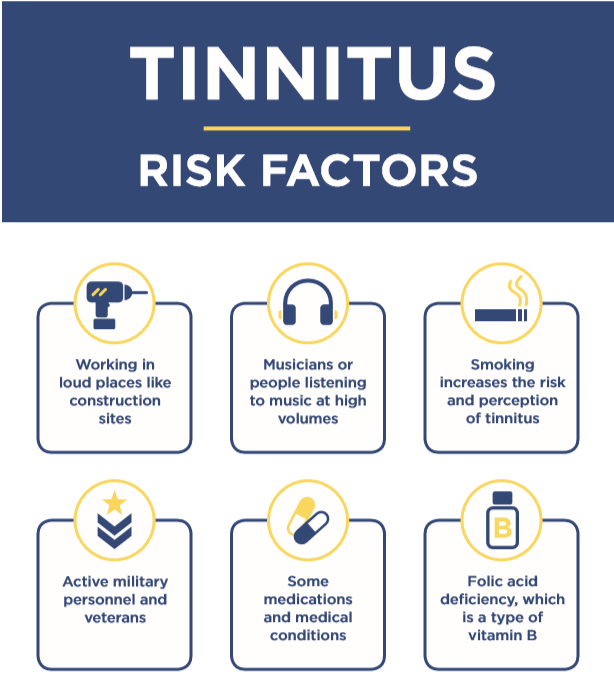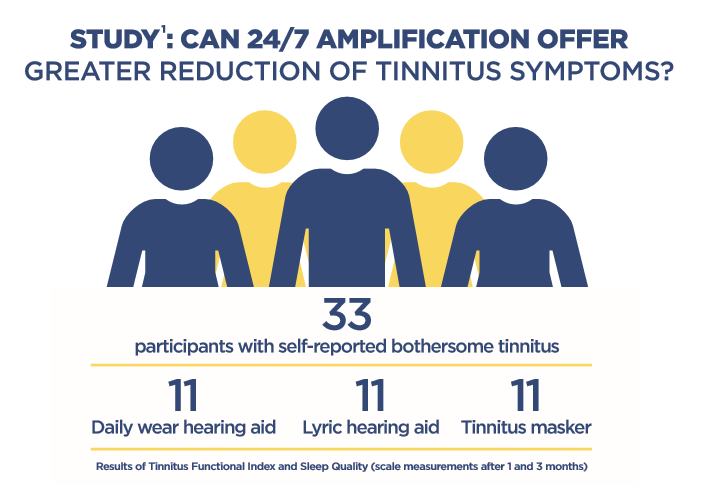Tinnitus the cause and effect on your life
Have you ever seen a band at a concert, let your feet go at a dance club, or even attended a wedding reception … then heard a ringing in your ears for a few days after?
Or, have you ran a machine at a factory for your job, ran heavy equipment at various construction sites for years, or even played the guitar up on stage for countless concerts your own band played … then began to notice a rumbling noise in your head, late at night, when everything should have been quiet?
Or, have you simply gone through your daily routine, minding your own business and living your life to the fullest, and began to hear ticking clocks at odd moments, an odd rhythmic chirping, or the sound of an appliance beeping when no appliances were around?
If so, you may have experienced tinnitus. The sound is often described as a ringing in the ears, but it runs the whole gamut of auditory perception, from a ticking clock to a whistling tea kettle, to a roaring freight train.
Where Does it Come From?
There are as many causes for tinnitus as there are perceived sounds. The damage to the sensitive hairs in the inner ear that leads to hearing loss in many cases also causes tinnitus. In fact, tinnitus is often a sign of hearing loss. But, there are also many other possible causes for tinnitus, some of which, again, also cause related to hearing loss.
- Loud work environment. Whether you’ve been working on the factory floor, running a jackhammer in the city or playing music to an adoring audience, that loud work environment is a major cause of both hearing loss and tinnitus.
- Excessive noise. Even if you work in a relatively quiet office, other sources of excessive noise, from engines, to dance clubs, to video game headsets, to loud stereos, headphones or televisions, can lead to tinnitus.
- Personal habits. No one likes to point blame at themselves, but personal habits, from consuming excessive amounts of alcohol to smoking tobacco, have been linked to either cause or exacerbate tinnitus.
- Stress and Fatigue. This may turn into a vicious circle. Tinnitus may cause anxiety, especially if it disrupts your way of life. And anxiety may either increase tinnitus or make it seem even more unbearable.
- One common side effect of many medications, such as aspirin, is tinnitus.
- Health issues. Heart disease, high blood pressure, dental issues and even folic acid deficiency can cause tinnitus.

How Can it Affect Your Well-Being?
Everyone experiences tinnitus differently. For some people, it is simply a minor annoyance, but, for others, it can be akin to physical torture. Tinnitus can even disrupt someone’s ability to think and concentrate on any task, whether it’s a menial chore or an intellectual endeavor. Depending on how loud you perceive it to be, tinnitus can even seem to interrupt your ability to understand speech, but that is often the result of hearing loss rather than the effect of tinnitus itself.
- Loss of concentration. Just as listening to loud bursts of noise or constant chatter can disrupt anyone’s concentration, so can the various sounds of tinnitus. Sometimes, tinnitus can be even more disruptive, because you can’t simply block out the sound by wearing earplugs or moving away from the source.
- At night, everything should be quiet, which makes it easier to drift off to sleep. But that silence can amplify your perception of tinnitus. This is one instance where the old saying about silence being deafening in volume, is the literal truth.
- Lapse of memory. The constant disruption of noise can make it seem like your memory is going, especially if you’re also not getting enough sleep. Your memory may be just fine, but if you have a harder time concentrating and thinking, then you will also have a harder time remembering things.
- Imagine being in a room where the noise is just too much. Your stress levels will rise. Now, imagine that you simply cannot escape the noise, no matter what you do. The inescapable nature of tinnitus adds even more stress.
- The inability to concentrate, exhaustion due to a lack of sleep, memory lapses, and anxiety can lead to the feeling that you may not be as sharp as you once were. This can lead to depression and other serious psychological issues, especially if tinnitus is accompanied by untreated hearing loss.

Introducing Lyric: The Invisible Hearing Aid
Phonak Lyric hearing aids combine several features that help to calm the effects of tinnitus. Their chief feature is that, by combining long battery life and moisture resistance, they can be worn all day, all night, all week, for months at a time. A 2018 study shows that wearing Lyric hearing aids 24/7 can alleviate the negative effects of tinnitus on a regular basis by:
- Reducing annoyance
- Providing quick relief
- Improving sleep
Furthermore, Lyric hearing aids allow you to have your hearing aids and enjoy them, too. They sit deep in your ear canal, so they are completely invisible as if they were a part of your ear. You can wear them to bed, on your morning jog, and even in the shower. Plus, they’re made by Phonak, so the sound you hear will be clear and natural.
Hearing Solutions has been serving Ontario for over 20 years, and we are proud to help people enjoy the world of sound and life. We offer a free hearing test in a warm and friendly environment. Our team understands the trials and tribulations involved with hearing loss and tinnitus, and we will help you choose the best options, for your unique situation.
- Power, D. (2018). Is Lyric an effective option for tinnitus? Investigating the benefits of a hearing aid that can be worn 24/7. Submitted for peer review publication.
- Tips to Avoid Tinnitus in Noisy Work Environments
- Ask an Audiologist: Protecting Yourself Against Tinnitus
- PR Key Media Insights & Messaging(1).pptx – Slide 39
- Impact of Tinnitus – https://www.ata.org/understanding-facts/impact-tinnitus







